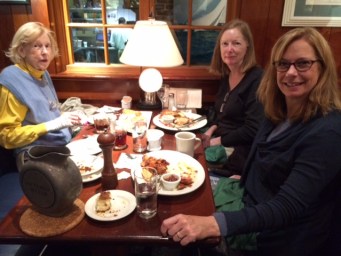 This is the tenth and last detailed item from my list of things to never say to a person diagnosed with dementia.
This is the tenth and last detailed item from my list of things to never say to a person diagnosed with dementia.
In some ways, this is a culmination of many of the key things to recognize when you are engaging with someone with dementia. While the person in front of you might be very different, seek to connect with the person you know. I understand that it’s easy to think they have no awareness of their surroundings, so why would they realize what was being said?
What is remarkable, and why dementia is devastating to those of us witnessing the changes in our loved ones, is that we see it steal away reasoning, executive functions, and interest in societal niceties. But if you are watching, you will see the individual need for meaning and purpose and the ability to connect with other humans remains.
When my dad passed away, and mom was in her assisted living community, she stopped going to lunch. She said she preferred the peanut butter and jelly sandwich in her room. When I would visit over lunch, I learned that most of the other residents didn’t want to sit with the “crazy lady” who couldn’t remember their name, ask them questions, or would just repeat the same story over and over. She didn’t want to go to lunch and sit alone. Who does?
There has been a good change to the way we view individuals with dementia. Kate Swaffer who posted the initial 20 “don’ts” has done a wonderful advocate for herself and everyone diagnosed with dementia. Behavioral research also demonstrates how changes to an environment and how you interact with them can benefit someone with dementia. Dismissing that the ability to recognize a terse remark or slight, is a mistake that could lead to agitated behaviors — just as it does for those of us without a dementia diagnosis.
The golden rule to “do unto others as you would have do unto you” applies to everyone. Recommended.


